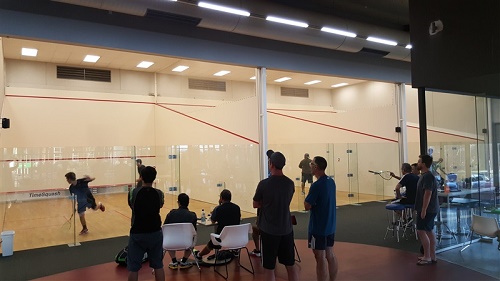Maximise motivation, minimise fear
30 May 2016Despite all the benefits that physical activity improves health, our population is getting less fit. Keeping people playing squash is a struggle and it is our responsibility to find ways to keep those who stick at it coming back for more. To do this effectively, we need to understand what people fear and what motivates them in the first place.

People avoid situations where they think they might fail - especially in social or group situations. The most obvious example is feeling embarrassed. How many times have you seen a coach comment on a mistake during a session? How do you think the player feels? As long as we prioritise the outcome we will only reinforce players’ fears of failing to achieve that outcome. Eventually they will leave and never come back.
Instead we need to emphasise what people are doing right rather than what they are doing wrong. When it comes to motivating people, it is important to understand that people generally come from two types of motivational orientations – approach and avoidance.
- Approach-orientated individuals play to increase the likelihood of receiving a reward such as praise or admiration.
- Avoidance-orientated individuals play to avoid punishments such as criticism or embarrassment.
Ways to up the motivation
- Avoid comparisons to others – nothing is more deflating than being compared to other Players. They would rather hear how well they are improving.
- Stress success, not mistakes – correcting bad technique is necessary but shouldn’t be the only thing. Look for opportunities to comment on what players are doing well and say so.
- Focus on feedback on what participants can control – focus our comments on things that are under the players’ control.
- The look vs. the feel – we need to teach our players to become aware of what they feel (the process) rather than how they look (the outcome). Those who keep coming back do so because they feel good about themselves.
The takeaway messages
- We need to look for opportunities to highlight how participants feel as they move and to comment positively on this.
- We need to offer praise, positive reinforcement and interaction.
- We need to remind participants how well they are doing and how much they are doing.
<< Back










